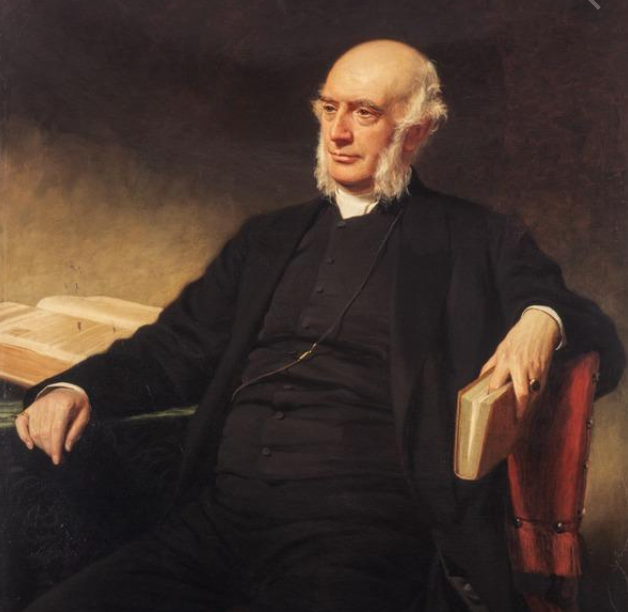The Importance of Knowing the Evidence for Christianity
- Jordan Tong
- May 27, 2021
- 4 min read

The following is a short excerpt from William Lindsay Alexander’s book, Christ and Christianity: A Vindication of the Divine Authority of the Christian Religion Grounded on the Historical Verity of the Life of Christ. There is a species of evidence that all believers possess – an internal or experiential evidence. But there is another species that is public and testable for others to see. Alexander helps us see the necessity of knowing and sharing this evidence. If you want to read or download then entire book, you can download it at the Library of Historical Apologetics. Just search for the author’s name. Enjoy!
----
It must be admitted by all thoughtful persons, that no question can be proposed, more worthy of being carefully considered and deliberately settled, than that which respects the truth of the religion of Jesus Christ. On no other question do interests so numerous and so awful hang, as are suspended on this. If Christianity be true, it is the one religion for man; for its claims being absolute and exclusive, if it is admitted to be true, it must be accepted as alone true – as the sole and perfect system of religious belief – the single trustworthy guide to immortality which is within the reach of man. On this supposition, to reject it or treat it with neglect is to remove the last hope of beatitude or of safety in that eternity which lies before us.
Again, if Christianity is not true, it is desirable that this should be settled upon solid and satisfactory grounds; for while, on the one hand, it would be a pity that so many should be resting upon a delusion, it is, on the other hand, unworthy of an intelligent man to reject such as system as this without being convinced, on the most satisfactory grounds, that it deserves to be rejected. Of all, then, whether inclined to be the enemies, or professing to be the adherents of Christianity, this question demands the conscientious scrutiny; of the latter, that their faith may not rest on mere tradition; of the former, that they may not be hastily seduced into a course which may turn out one of sin and folly, as well as of irreparable disaster.
To those, indeed, who have previously embraced the religion of Jesus Christ, there is a species of evidence arising from within their own souls, which may seem to render them independent of any consideration of the objective evidences of our faith. Such have a witness in their own hearts. Truth, like light, carries its own evidence with it; and especially in the case of moral truth, there is a certain response yielded by the inner man to the enunciation of what is true, which, to the mind that is subject of it, is often the strongest of all confirmations. In a scheme like Christianity, moreover, which professes to furnish a method of satisfying the religious wants, and furthering the religions interests of mankind, there is an opportunity afforded to those who embrace it of putting its pretensions, in this respect, to the test; and when it is found experimentally to answer to its pretensions, when it is found actually to perform what it offers to perform, the man in whom the experiment had been conducted cannot but feel that he has in himself an evidence of the truth of the system, to which he may with the utmost confidence appeal.
But while admitting all this, I would nevertheless contend that no Christian can wisely, or even safely, neglect the study of those evidences of our religion, which go to prove it true antecedent to the personal reception of it by the individual. Let it be remembered that whatever evidence personal experience can convey to a man’s own mind, it is only to himself that such evidence is addressed, and it cannot be made available for the service of the gospel beyond the narrow sphere of his individual convictions.
Let it be remembered, also, that Christianity comes to us in an objective form – in the form of a book; that, therefore, it is not only bound to bring with it such evidence as shall entitle it to speak to us authoritatively, but that the sure and orderly process for us is to insist upon its satisfying us on this point before we listen to it; and that when this is not done, there will always remain a weak point in our foundation, of which the adversary may find means to avail himself for our own discomfort, and the injury of our cause.
And, in fine, let it be remembered, that as it is not only certain cardinal verities that the Christian must yield his cordial assent but to all things which are written in the book in which the development are Christianity is contained; it is only as he is satisfied, on solid ground, that the book, as a book, is entitled to his homage, that he will be prepared to bow to it with that docility which is required. For his own sake, then, for the sake of the cause of Christianity, as well as for the sake of those who may be yet opposing themselves to the truth, it behooves the Christian to make himself familiar with the evidences of his religion, that he may not only be himself well established in the faith, but be “ready always to give an answer to every man that asketh the reason of the hope that is in him, with meekness and fear.”
Click here to download the full book from the Library of Historical Apologetics. Just search for the author’s name.



Comments